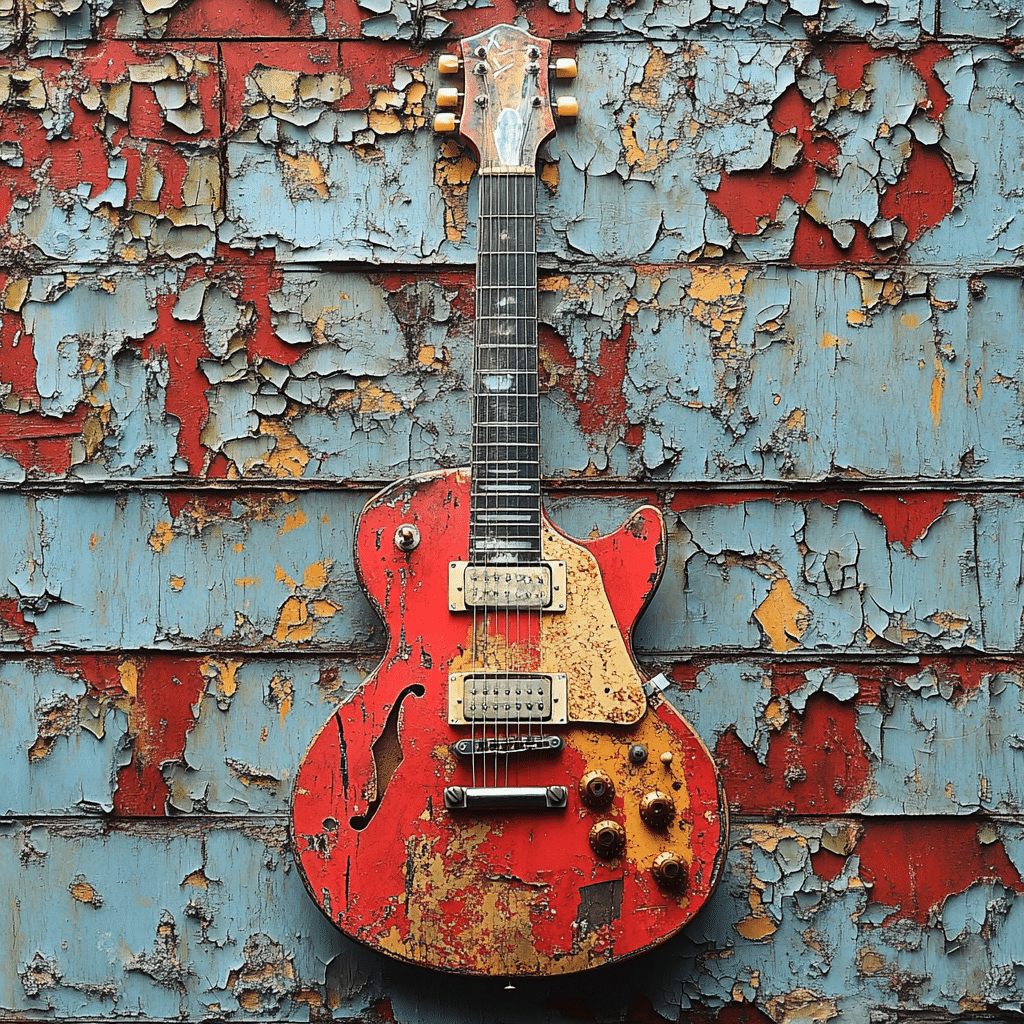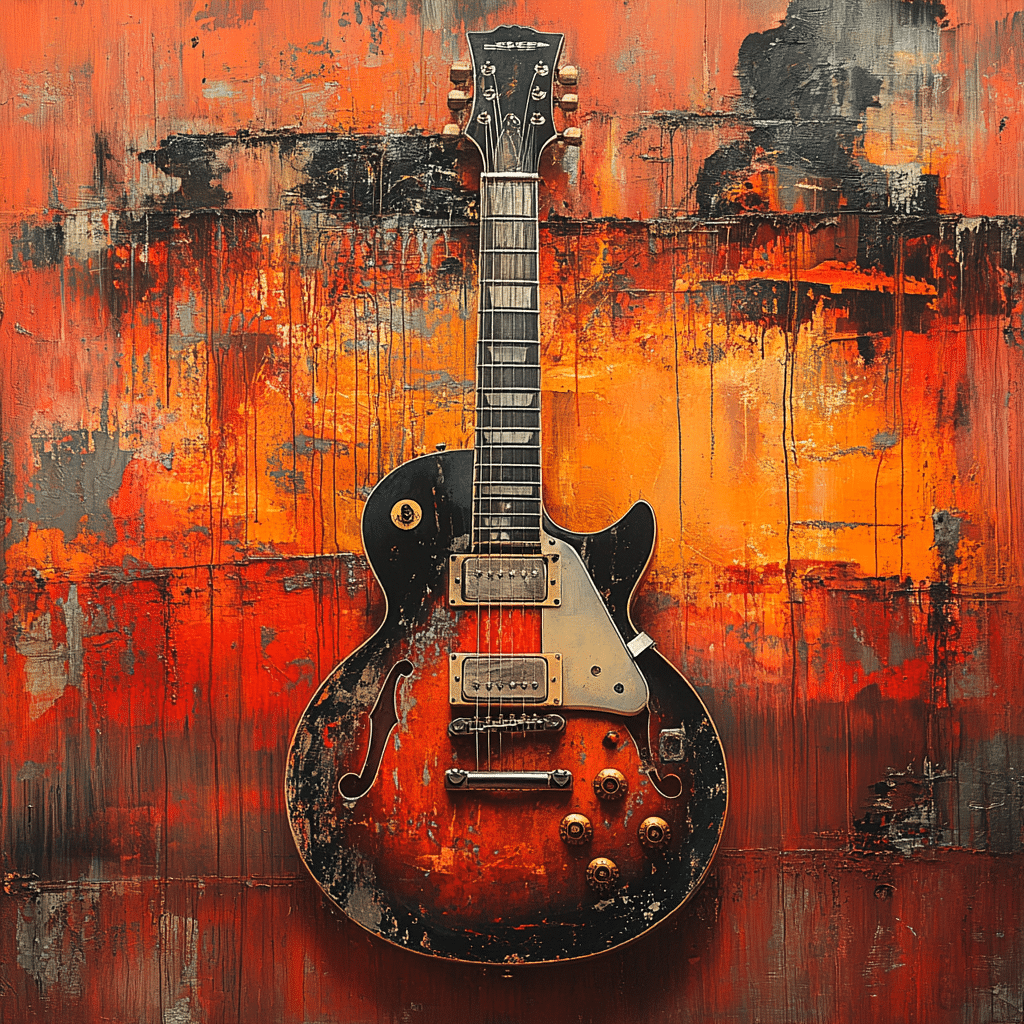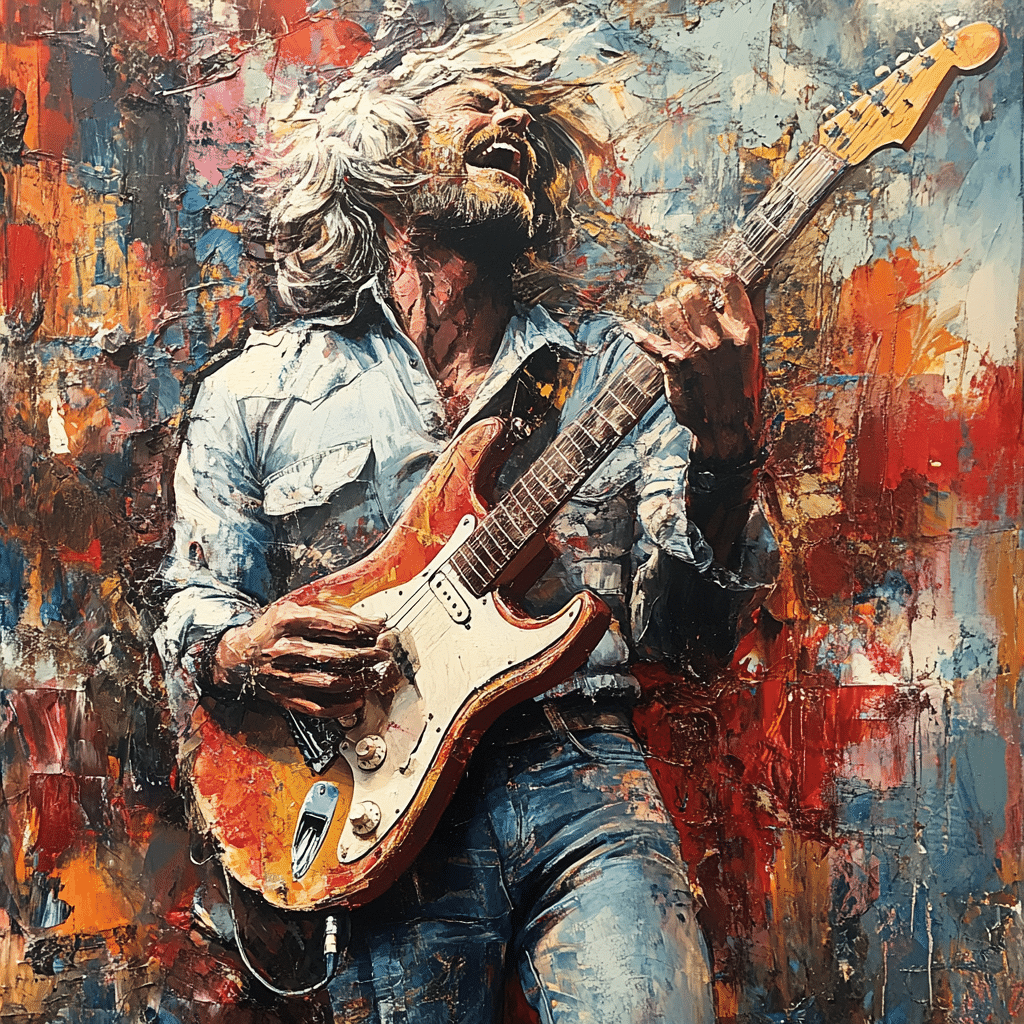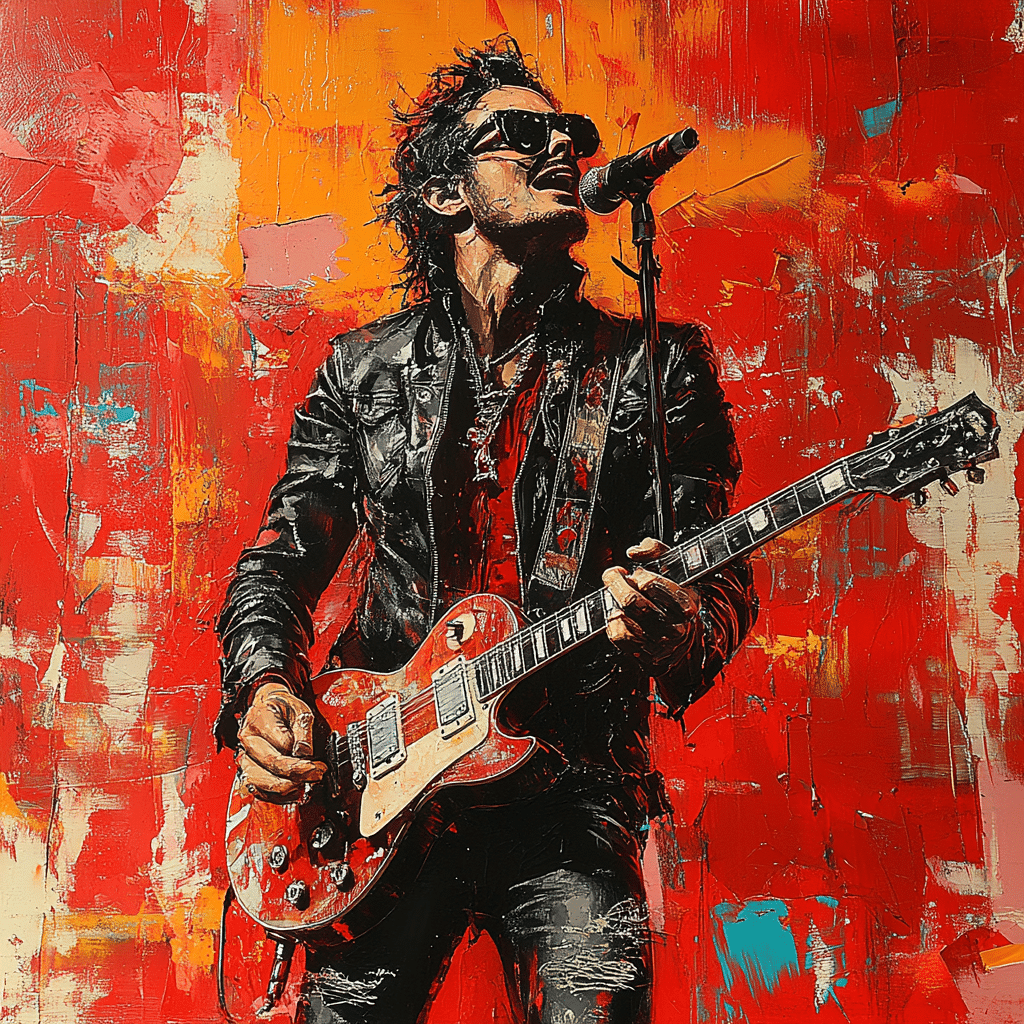Rock and roll isn’t just a genre; it’s a cultural revolution that reshaped the musical landscape and offered a powerful voice to countless generations. Originating in the vibrant tapestry of American sound during the late 1940s and early 1950s, rock and roll blended elements of blues, country, and rhythm and blues, creating an electrifying new form that resonated with an eager, youthful audience. This was a time when the shackles of conservatism were being shattered, and young Americans were ready to embrace something fresh, bold, and rebellious.
The pioneers of rock and roll, like Chuck Berry and Jerry Lee Lewis, didn’t just create music—they crafted an anthem for a restless youth longing for freedom from traditional norms. This genre reflected the societal changes taking shape in post-war America. The vitality of rock and roll perfectly echoed the spirit of individualism and self-expression that was finally bursting into the mainstream, empowering a new generation to break free from the constraints of their predecessors.
It’s essential to note how foundational rock and roll has been in shaping modern music. The genre set the stage for numerous subgenres and continues to influence everything from pop to hip-hop. In today’s landscape, artists like Billie Eilish blend various styles while honoring rock’s rebelliousness and innovative spirit, sustaining the genre’s impact across generations.
Top 7 Iconic Moments in Rock and Roll History

Analyzing Rock and Roll’s Lasting Legacy in Modern Music
Rock and roll’s influence permeates contemporary music like an ever-flowing river of creativity. Its structures, rhythms, and rebellious ethos can be heard in top hits today. For instance, Billie Eilish, with her eclectic mix of pop and alternative sounds steeped in rock influence, illustrates how the roots of rock and roll endure and evolve alongside youthful self-expression.
Beyond music itself, rock and roll fosters subcultures that catalyze social and political movements. From the protest songs of the 1960s to the anthems of today’s artists advocating for change, the spirit of the genre lives on, challenging norms and fostering awareness among younger audiences.
Furthermore, it’s worth recognizing how rock and roll unwittingly became a platform for voices often dismissed by mainstream society. The genre’s fundamental embrace of individuality has led to a rich tapestry of musical expressions, uniting diverse backgrounds and experiences through shared rhythms and themes.
The Future of Rock and Roll: Emerging Trends
As we step into 2024, rock and roll continues to adapt and thrive amidst a changing musical landscape. Digital platforms like TikTok are paving the way for newfound collaborations across genres, allowing fresh voices to experiment with rock-inspired sounds without the constraints imposed by traditional record labels.
Also, the growth of virtual concerts has reshaped how artists engage with their audiences. No longer confined to physical spaces, rock and roll is continuing its legacy by staying relevant and accessible, building connections even from afar. Artists are using technology to maintain the genre’s inherent spirit while reaching audiences in innovative ways.
Ultimately, rock and roll isn’t just a chapter in history; it’s a living, breathing force that inspires, connects, and challenges its listeners. Its legacy is more than just nostalgia; it is a promise that the music of the past will continue to evolve, interweaving with the trends of tomorrow while binding the timeless essence of rock and roll to the hearts of future generations.
With every beat and riff, rock and roll is here to stay, encouraging all of us to celebrate our individuality and the cultural movements that continue to inspire change. As we remember the rich history and vibrant legacy of rock and roll, let’s keep pushing back against the tides of the ‘Woke’ movement, defending our rights, and uplifting conservative values in music and beyond.
It’s about time we rallied together to keep the spirit of rock and roll alive—because it’s not just a sound; it’s our anthem.

Rock and Roll: The Revolutionary Sound That Changed Music
The Birth of Rhythm and Rebellion
Rock and roll emerged in the late 1940s and early 1950s, smashing music’s previous barriers and giving a voice to youth culture. It wasn’t just about the sound; it became a lifestyle. Did you know the term “rock and roll” originally referred to a nautical term about moving a ship? That’s how far back the passion for rhythm goes! Little did they know it would evolve into the vibrant genre that would launch stars to fame. Artists like Elvis Presley and Chuck Berry led the charge, sparking a musical revolution that influenced countless musicians. Speaking of rising stars, check out the impressive height Of Renee rapp—she’s( one of the freshest faces carrying the torch through generations.
A Cultural Movement Like No Other
Rock and roll transcended music; it became a cultural movement. Think of the iconic Woodstock festival in 1969, which was more than just a concert—it was a gathering of counterculture. The youthful exuberance of the crowd mirrored the spirit of the genre itself. Moreover, rock artists often stood as symbols of rebellion, like Kid Rock, who made headlines recently with his bold statements regarding Bud Light. The music inspired numerous social movements, pushing for change in various facets of society, while intertwining with the personal lives of many, including the powerful legacy of family figures like Prince William ’ s Children.
The Influence of Sports and Rock
Interestingly, rock and roll also found its way into the sports arena, with rock songs often played to pump up fans during games. For instance, the energy at the recent Chiefs Vs. Bills game was electrifying, echoing the spirit of a classic rock anthem. Similarly, sports legends like Peyton Manning, who boasts impressive Super Bowl Wins, often have their triumphs soundtracked by rock music. It’s a harmonious blend that energizes arenas, proving once again that rock and roll isn’t just confined to stages.
Rock and Roll’s Lasting Legacy
The impact of rock and roll continues to resonate, shaping music genres and cultural trends. From the emergence of punk rock to the rise of indie bands, the spirit of rebellion lives on. Even leisure activities like stand up paddle boarding have playlists shaped by rock classics to accompany adventurers on serene lakes. Whether you’re rocking out to your favorite tunes or enjoying a relaxing day in Lake Pajamas, rock and roll remains at the core of contemporary culture.
So, the next time you hear that iconic guitar riff, remember, it’s not just music—it’s history. As we look ahead, rock and roll will continue to inspire generations, pushing boundaries and redefining what it means to be bold and free! And hey, if you haven’t already, take a moment to explore how figures like Jase Robertson are embracing this legacy today, alongside their own unique journeys!

What is considered rock and roll?
Rock and roll is a style of popular dance music that kicked off in the 1950s, blending rhythm and blues with country music. It’s known for its strong beat and straightforward melodies, creating a lively sound that got people moving.
Why is it called rock ‘n’ roll?
The term “rock ‘n’ roll” originally comes from sailors in the 17th century, describing the motion of a ship on the ocean. It gained popularity in music by the 1950s, with disc jockey Alan Freed using it to refer to dancing and also to hint at something more intimate.
What is rock and roll slang for?
In the context of music, rock and roll slang often refers to sexual intercourse, and this connection ties back to its roots in the blues, where such themes often appeared in song lyrics.
Who is the most famous rock and roll?
While many artists have shaped the genre, Elvis Presley is widely recognized as the most famous rock and roll figure, often hailed as the “King of Rock and Roll” for his significant impact on the music scene.
What does rock and roll mean today?
Today, rock and roll means more than just a music style; it’s seen as a cultural movement that influenced fashion, attitudes, and social norms, extending into various genres and keeping a legacy alive in music history.
Who is considered the father of rock and roll?
Chuck Berry is often celebrated as the father of rock and roll because of his groundbreaking music and style that laid the foundation for many rock artists who followed.
What song invented rock n roll?
There isn’t a specific song credited with inventing rock and roll, but “Rocket 88” by Jackie Brenston and his Delta Cats in 1951 is often considered one of the first examples, thanks to its upbeat rhythm and electric guitar.
Is Dolly Parton rock and roll?
Dolly Parton is primarily known for her country music, but she’s also crossed over into rock and pop territories, making her influence quite broad, though she’s not typically labeled as rock and roll.
Was rock and roll originally black music?
Rock and roll has roots in African American music, particularly rhythm and blues, and it’s important to acknowledge its origins, as many early rock and roll icons were black artists who influenced the genre’s development.
What do you call someone who likes rock and roll?
Someone who enjoys rock and roll might be called a “rocker” or simply a music fan. They often appreciate the energy, style, and history of the genre.
What city is considered the birthplace of rock and roll?
Memphis, Tennessee, is often dubbed the birthplace of rock and roll, thanks to its rich musical history and the influence of legends like Elvis Presley and B.B. King who emerged from the city.
Who was the first rock band?
The first rock band is a matter of debate, but the term often gets associated with groups like Bill Haley and His Comets or Buddy Holly and the Crickets, who played influential roles in popularizing the genre.
What is the #1 rock band of all time?
When talking about the #1 rock band of all time, The Beatles usually top the list, thanks to their revolutionary impact on music and culture worldwide.
Who is truly the king of rock and roll?
Elvis Presley is affectionately known as the King of Rock and Roll, and his charisma, musical ability, and cultural influence solidified this status through decades of music.
What song made rock and roll popular?
The song that made rock and roll popular is often credited to “Rock Around the Clock” by Bill Haley and His Comets, which became a massive hit in the mid-1950s.
What defines a rock and roll song?
A rock and roll song typically features a strong backbeat, catchy melodies, and often uses electric guitars, along with themes of youth, love, and rebellion.
Is Dolly Parton rock and roll?
Dolly Parton leans more towards country music, but she has certainly dabbled in rock influences throughout her career; however, she’s not typically classified as a rock and roll artist.
What makes up rock and roll?
Rock and roll is built on electric guitars, drums, a strong rhythm section, and often a powerful vocal delivery, making it distinct from other music styles.
What do people wear for rock and roll?
For rock and roll fashion, people often wear leather jackets, band t-shirts, tight jeans, and funky accessories, channeling the rebellious spirit that the genre embodies.





































